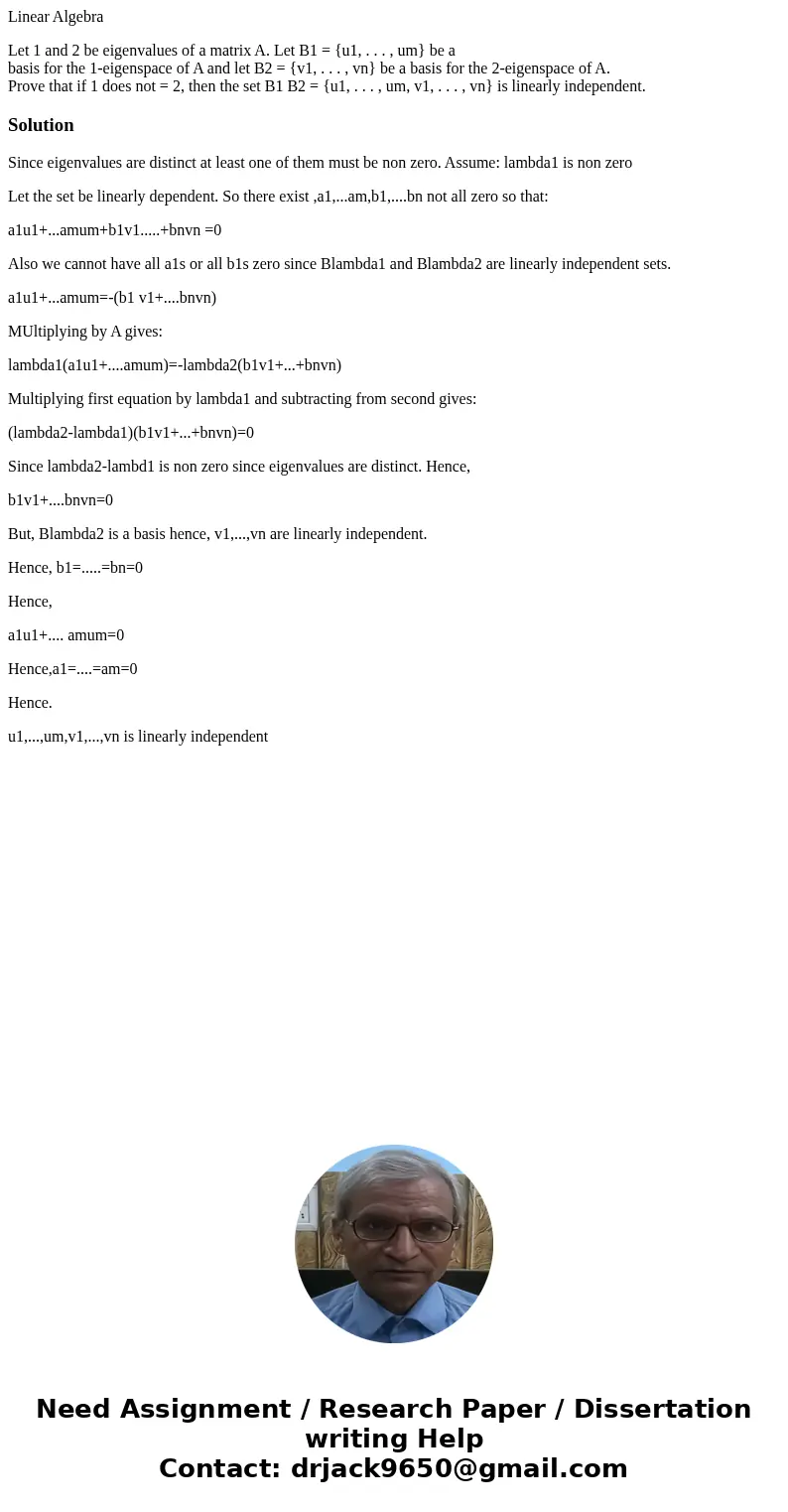Linear Algebra Let 1 and 2 be eigenvalues of a matrix A Let
Linear Algebra
Let 1 and 2 be eigenvalues of a matrix A. Let B1 = {u1, . . . , um} be a
basis for the 1-eigenspace of A and let B2 = {v1, . . . , vn} be a basis for the 2-eigenspace of A.
Prove that if 1 does not = 2, then the set B1 B2 = {u1, . . . , um, v1, . . . , vn} is linearly independent.
Solution
Since eigenvalues are distinct at least one of them must be non zero. Assume: lambda1 is non zero
Let the set be linearly dependent. So there exist ,a1,...am,b1,....bn not all zero so that:
a1u1+...amum+b1v1.....+bnvn =0
Also we cannot have all a1s or all b1s zero since Blambda1 and Blambda2 are linearly independent sets.
a1u1+...amum=-(b1 v1+....bnvn)
MUltiplying by A gives:
lambda1(a1u1+....amum)=-lambda2(b1v1+...+bnvn)
Multiplying first equation by lambda1 and subtracting from second gives:
(lambda2-lambda1)(b1v1+...+bnvn)=0
Since lambda2-lambd1 is non zero since eigenvalues are distinct. Hence,
b1v1+....bnvn=0
But, Blambda2 is a basis hence, v1,...,vn are linearly independent.
Hence, b1=.....=bn=0
Hence,
a1u1+.... amum=0
Hence,a1=....=am=0
Hence.
u1,...,um,v1,...,vn is linearly independent

 Homework Sourse
Homework Sourse